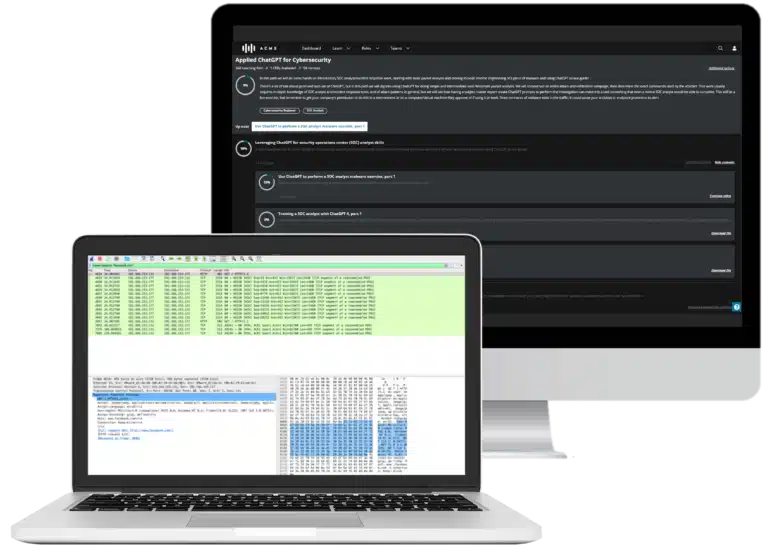Top 10 secure coder interview questions and answers
Security software vulnerabilities are considered among the top cybersecurity threats to companies. Unfortunately, many organizations lack professionals with expertise in secure software development. This has increased the demand for secure coders, who specialize in integrating security inside software before it’s transferred into a production environment.
A secure coder typically works under various job titles, with security software developer being the most common. Other titles employers may use to hire these professionals include software testing engineers and secure software assessors. These professionals are responsible for writing secure code that helps protect applications against vulnerabilities like logic flaws, bugs, and defects.
Getting a secure coder job requires a demonstration of field knowledge. Employers expect candidates to know multiple disciplines and what solutions can help them execute secure software development. Today, we’ll look at the top security software developer interview questions and how to answer them to the best of your ability.
Frequently asked questions you should anticipate
Before sitting on the hot seat, get familiar with the answers to these typical security software developer interview questions. The way employers ask these questions may vary from company to company, but it is good to know the answers before going into your interview.
General questions
1. Why did you choose to apply for this role?
This fundamental question helps employers gauge the interest and seriousness of candidates. Although the question is basic, your answer shouldn’t be. Avoid saying things like ‘secure coding is my passion” or “I find security engineering interesting.’ Rather, share the specific factors that made you apply for the job, such as the opportunity to secure certain types of security applications.
2. Tell us about your experience as a security software developer?
This question assesses whether you have sufficient knowledge to do the job effectively. Discuss your past accolades and future objectives using language that fits the employer’s brand. Elaborate field learnings and transferable skills that suit the security coder position. If you have relevant certifications, there’s no harm in mentioning a few along with the name of the issuing body, such as CertNexus Cyber Secure Coder.
3. What do you know about OWASP?
Mention that it’s short for Open Web Application Security Project, a non-profit working on improving software security. Then cite a few tools and applications it offers to educate users about web security, such as the top 10 security risk documentation and open source DAST tool for automated/manual scanning of vulnerabilities.
4. How do you stay current with cybersecurity developments?
Mention the ways you keep up with cybersecurity news and trends. Name the thought leaders you follow on Twitter, cybersecurity podcasts you listen to, newsletters you subscribe to and cybersecurity blogs you read. Sharing your opinion on a recent cybersecurity news event to highlight your passion for the industry is also a good idea.
5. Can you describe a security crisis or issue that you resolved?
Can you describe a security crisis or issue that you resolved? This is a situational question that helps the interviewer gauge your analytical thinking. You’ll want to outline your approach and strategy using the STAR (situation, task, action and result) method. Also, emphasize how you remained patient and used the resources at your disposal to deal with the crisis. Answering confidently while explaining how you handled a specific security issue can demonstrate your ability to do the job well.
Technical questions
6. What is a three-way handshake?
This theory question demonstrates your understanding of how a TCP connection is established. Explain that a TCP/IP network uses a three-way handshake to establish a client-server connection, where:
- The client sends an SYN request to check whether the server has open ports.
- The server with open ports responds by transmitting an SYN-ACK packet (acknowledgment packet).
- The client acknowledges the response by returning an ACK packet to the server.
7. What techniques would you use to prevent a brute-force login attack?
Prospective employers may ask this question to see whether you are up-to-date with software security best practices. Phrase your answer around ensuring proper password policies via system-level enforcement. Unauthenticated users will not be allowed to circumvent security and use a weak password in environments where such measures are implemented.
8. What are some factors that can cause software vulnerabilities?
Employers want to know whether you know the common causes of software vulnerabilities. You can say that design flaws, weak password policies, poor data management, and software complexity are some factors causing software vulnerabilities. Show that you understand the root causes and can write code to strengthen security.
9. What is cross-site scripting?
Explain that it is a client-side code injection attack where an adversary executes malicious scripts to perform negative actions in an application. It typically occurs due to needing more security considerations in the development cycle. Data validation is the best way to combat an XSS vulnerability, both on the server and on the client side. Plus, companies should prioritize using encrypted and validated input as code to have positive outcomes for the business hosting the software.
10. How would you prevent hackers from conducting this kind of attack?
Talk about the importance of user awareness and training to show you what it takes to prevent XSS and other attacks. Scanning stations are another option — they can help ensure the portable hard drives and USB flash drives employees have to plug in at work don’t infect the company’s system and software. Penetration testing can also be handy for keeping data safe by identifying and securing a system against different cybersecurity attacks.
Nailing the security software developer interview
Going in for a job interview is a game of nerves. Often the preparation part will make you doubt your experience and skills. But this is normal, and a little practice will prepare you to answer any question the hiring manager may ask. Having some questions ready for the end of the interview; will make a lasting impression on the employer. Good luck, and happy practicing!




